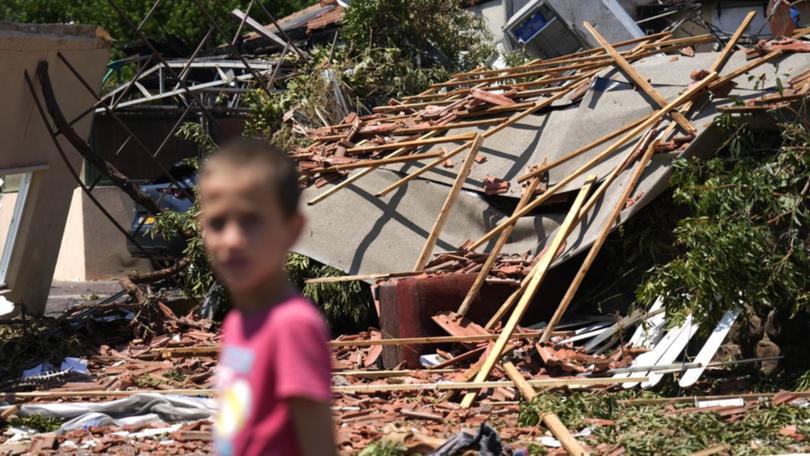Middle East: Lebanon’s Hezbollah fires more than 50 rockets at Israeli-annexed Golan Heights as Biden calls Netanyahu
US President Joe Biden has spoken with Israeli Prime Minister Benjamin Netanyahu, as rockets from Lebanon's Hezbollah rained down on Israeli-annexed Golan Heights.

Lebanon’s Hezbollah has launched more than 50 rockets, hitting a number of private homes in the Israeli-annexed Golan Heights.
The attack came a day after US Secretary of State Antony Blinken met with fellow mediators Egypt and Qatar as he pressed ahead with the latest diplomatic mission to secure a ceasefire in the war in Gaza, even as Hamas and Israel signalled that challenges remain.
Diplomatic efforts had redoubled as fears grow of a wider regional war after the recent targeted killings of Hamas and Hezbollah leaders, both blamed on Israel, and threats of retaliation.
Sign up to The Nightly's newsletters.
Get the first look at the digital newspaper, curated daily stories and breaking headlines delivered to your inbox.
By continuing you agree to our Terms and Privacy Policy.Hezbollah said on Wednesday’s attack was in response to an Israeli strike deep into Lebanon on Tuesday night.
Meanwhile, key mediator Egypt expressed scepticism on Wednesday as more details emerged of the proposal meant to bridge gaps between Israel and Hamas.
Officials in Egypt, in its unique role as both a mediator and affected party since it borders Gaza, told The Associated Press that the Hamas militant group would not agree to the bridging proposal for several reasons — ones in addition to the long-held wariness over whether a deal would truly remove Israel forces from Gaza and end the war.
President Joe Biden spoke with Israeli Prime Minister Benjamin Netanyahu on Wednesday, the White House said, without immediately giving details on what was said.
Hamas is believed to be still holding around 110 hostages captured during the October 7 attacks that started the war. Israeli authorities estimate around a third are dead.
During the October 7 attack, militants killed some 1200 people, mostly civilians.
Israel’s retaliatory offensive has killed over 40,000 Palestinians, according to Gaza’s Health Ministry, which does not distinguish between civilians and combatants in its count.
The war has caused widespread destruction and forced the vast majority of Gaza’s 2.3 million residents to flee their homes, often multiple times.
The UN humanitarian office is warning that mass evacuation orders by the Israeli military this month are pushing Palestinians into overcrowded and unsafe areas along the Gaza coast.
UN spokesman Stephane Dujarric told reporters that the latest orders issued Wednesday for part of Deir al-Balah in central Gaza and Khan Younis in the south affect 115 sites with more than 150,000 displaced men, women and children, including UN and many informal and makeshift shelters.
Meanwhile, the outgoing head of Israeli military intelligence says the failures of October 7 will haunt him for the rest of his life.
Major General Aharon Haliva said on Wednesday that he bore responsibility for the intelligence breakdowns that allowed Hamas to carry out the cross-border attack that day that sparked Israel’s ongoing war against the militant group.
Haliva announced his resignation in April.
Speaking at a handover ceremony with his successor, Haliva said the bitter memories of October 7 weigh on his conscience “day and night and will do so for the rest of my days.”
“We did not fulfil our most important mission, giving a warning of war” he added, breaking down in tears at one point while he spoke about his family.
“The ultimate responsibility for the failure of the intelligence division rest with me.”
